2023 Agenda

Flip through our conference brochure and discover what’s new this year.
Download Brochure
Pre-Conference Extras
November 28, 2023
Workshop A
FCPA Basic Training: A Step-by-Step Guide to Key Requirements, Enforcement Actions and Settlements

Susanne M. HancharAssociate Vice President – Global Ethics and Compliance, Anti-Corruption & InvestigationsEli Lilly and Company

Brian E. SpearsPartnerSpears Manning & Martini LLC

Shannon StokesAssistant General Counsel Legal & ComplianceWorld Fuel Services
Our Workshop Faculty will take a deep dive into critical FCPA compliance components; and lay the foundation for the main conference discussions. Workshop participants will gain a solid foundation through smaller-group learning, interactive Q & A, and will benefit from speaker-prepared reference materials to take back to the office after the conference.
Topics for discussion include:
- Who is included in the FCPA
- Foreign Subsidiaries and Private Issuers, joint venture partners — who qualifies?
- A geographic breakdown and discussion on the full reach of the FCPA
- What is the potential exposure for employees, executives and board members?
- A look at some of the important domestic and global enforcement agencies, including their roles and jurisdictional reach
- The core components of the DOJ Compensation Clawback Pilot program
- An in-depth look at some of the new and intensifying risks affecting organizations and their employees:
- Individual criminal liability
- Civil liability
- Corporate culture implications
- Reputational damage
- Whistleblower complaints
- What it truly means to “pay, offer or promise to pay, or authorize the payment of anything of value to a foreign official in order to influence any act or decision of the official in order to obtain or retain business”
- The classification of exactly who a “foreign official” is under the FCPA; and expectations for working with representatives and employees of state-owned organizations
- Clarification of “anything of value”; including:
- Gifts and entertainment
- Travel
- Charitable and political contributions
- Available exceptions under the FCPA
- Orchestrating payments:
- Reasonable and bona fide expenditures
- Monitoring and third-party due diligence
- Agents/Consultants/Joint venture partners
- Customs agents and brokers
- What it means to maintain records that “accurately and fairly” reflect transactions
Workshop B
The Nuts and Bolts of DOJ’s Guidance and the Core Components of an Effective Compliance Program: From Risk Assessments, Internal Controls and Policies, to Third-Party Management

Jannette HasanCorporate Director, Assistant General Counsel, Global Compliance ProgramNorthrop Grumman Corporation Law Department

Marnee RandTrial Attorney, Corporate Enforcement, Compliance, and Policy Unit, Fraud SectionU.S. Department of Justice

Frederick RatliffManaging Counsel, Anti-CorruptionShell

Caitlin SheardSenior AssociateOrrick Herrington & Sutcliffe LLP
The DOJ announced significant updates to its corporate compliance programs guidance, corporate criminal enforcement policies, as well as an increase of enforcement resources to address national security concerns.
The updates to the Guidance send a clear message that DOJ continues to heighten expectations, and will closely evaluate the design and effectiveness of compliance programs.
This practical session — designed for organizations with diverse size, operational and organizational complexities, and varying resources — will delve into the finer points of the DOJ Guidance, and the building blocks for an effective compliance and third-party management program, including:
- Developing your risk profile, conducting risk assessments and identifying compliance weak spots
- Customizing your program by developing an understanding of the current state of affairs; finding out what risks already exist; and documenting the key company processes, systems, and transactions that need to be monitored
- Mapping out the potential risk contact points that exist throughout the company
- Best practices for periodically updating risk assessment priorities
- How to continuously test the effectiveness of a compliance program, to show that it is improving, adapting and sustainable
- Satisfying obligations to report on the status of the compliance program
- Monitoring and auditing compliance program components, as well as reporting on current or anticipated enhancements
- How to truly know if your program is working—and when to sound the alarm
- What it now takes, and the extent of due diligence required for your program to be “reasonably designed”
- When and how much due diligence to perform for an ongoing, existing third-party relationship
- When and how much to train third parties
- Identifying the solutions and applications that are needed to risk-rank transactions and geographic regions; to readily identify areas that require enhanced third-party due diligence
- Best practices for advising the organization on internal controls; including through legal, compliance and financial perspectives
- Identifying common examples of inadequate internal controls and related program deficiencies to avoid
 Main Conference Welcome Cocktail Reception
Main Conference Welcome Cocktail Reception
Sponsored by:
Sponsored by:

Main Conference Day 1
November 29, 2023
 Registration & Breakfast
Registration & Breakfast
Sponsored by:
Sponsored by:


David FuhrChief, FCPA Unit, Fraud SectionU.S. Department of Justice
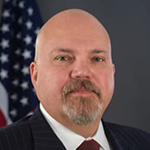
Charles CainChief, FCPA UnitU.S. Securities and Exchange Commission

Kwame J. ManleyPartnerPaul Hastings LLP
Join us as the DOJ and SEC Unit Chiefs provide updates on key developments over the last twelve months, and discuss upcoming enforcement priorities as we transition to 2024.
Key highlights include:
- Expectations for ephemeral messaging and clawbacks
- Corporate and individual enforcement updates
- Where industry has gone right and wrong on compliance
- Clarifying requirements for obtaining cooperation credit
- Insights on voluntary disclosures
- How the DOJ and SEC are working with international authorities
Audience Polling
THE BIG DEBATE
Compensation Clawbacks: A Deterrent or A Detriment? Leading Practitioners Make Their Case

Charles DurossPartnerMorrison Foerster

Aisling O’SheaPartnerSullivan & Cromwell LLP

Laura PerkinsPartnerHughes Hubbard & Reed

Martin J. WeinsteinPartnerCadwalader, Wickersham & Taft LLP

Robert A. JohnstonPartnerLowenstein Sandler LLP
Don’t miss out as our panelists debate the pros and cons of the Program, with audience members selecting the winning team via anonymous audience polling! Debate topics include:
- Does the implementation of compensation or bonus clawbacks have the desired deterrent effect?
- Will this have the effect of rewarding companies while unduly penalizing individual employees?
- Is the linear connection between money and compliance realistic?
- Will this shift the burden of corporate wrongdoing away from shareholders onto those directly responsible?
- What are the actual requirements for a discretionary reduction?
 Networking Break
Networking Break
Hosted by:

Hosted by:

Future of FCPA Compliance Series
Ephemeral Communications, Cooperation Credit and DOJ Expectations: The Newest, High Stakes Risks on the Line – from Employment Litigation, Data Privacy to FCPA Penalty Exposure
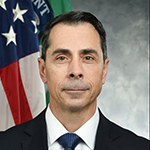
Kenneth BlancoChief Compliance Officer, Financial Crimes UnitCitigroup Inc.

David N. KelleyPartnerDechert LLP

Rebecca RohrHead of Corporate & Government InvestigationsEricsson

Neil T. SmithPartnerK&L Gates LLP

Patrick F. StokesPartnerGibson, Dunn & Crutcher LLP
During this critically important panel, speakers will unpack some of the biggest issues and worst case scenarios when trying to meet DOJ expectations for cooperation — and the latest best practices for mitigating multiple layers of liability risks:
- The dilemma with employee personal devices being used for bona fide work purposes
- Tensions and issues that can arise when employees refuse to cooperate with corporate policies
- Deciding whether or not to terminate an employee who refuses to cooperate
- Litigation costs and challenges in the context of privacy and message retrieval
- Revisiting your policy amid the interplay of GDPR risks
- Implementing an e-discovery program relating to messaging app
- When you can ask for employees’ personal devices for review
- Retaining counsel for the employee: Determining your obligations as an employer
- What can help to yield cooperation credit—and what has fallen short
 Networking Luncheon
Networking Luncheon
Women in FCPA and Anti-Corruption Luncheon (by invitation only)
Sponsored by: 
Women in FCPA and Anti-Corruption Luncheon (by invitation only)
Sponsored by:

BREAKOUT SESSIONS A (Select one session)
Track 1: Interactive Benchmarking Series: The Grey Areas of Operationalizing New DOJ Guidance and Policies

Lauren KootmanAssistant Chief, Corporate Enforcement, Compliance, and Policy Unit, Fraud SectionU.S. Department of Justice

James J. GibsonGlobal Compliance CounselCoca-Cola

Natasha TrifunExecutive Director, Head of Compliance, R&D, Global Medical, External Funding & Global FunctionsAlexion Pharmaceuticals, Inc.

Rachel MaiminPartnerLowenstein Sandler LLP

Dr. Donatus KaufmannStrategic Executive GRC AdvisorKaufmann & Company (Germany)
- Concrete examples of program upgrades and compliance pain points
- Testing the effectiveness of your compliance program to show that it is: improving, adapting, and updating the program to ensure that it is sustainable and adapting to changing risks
- Reviewing the qualifications and expertise of your compliance personnel
- Rethinking resource allocation and delivery methods for training
- Fostering and sustaining a strong corporate culture
- Dashboards and other mechanisms for reporting
Track 2: A New Era of Self-Disclosure and Cooperation Credit – and Your Risk Calculus: What Constitutes Immediate Self-Disclosure, and What are the Enhanced Benefits for Full Cooperation?
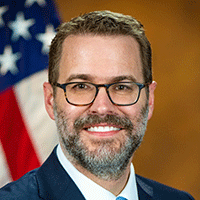
Brent WibleActing Senior Counselor, Criminal DivisionU.S. Department of Justice

William P. BarryMember, Chair, Litigation DepartmentMiller & Chevalier Chartered

Erin Brown JonesPartnerLatham & Watkins LLP

Darryl LewPartnerWhite & Case LLP

John J. Pease IIIPartnerMorgan, Lewis & Bockius LLP
- Perspectives on what is “immediate”—and what is not
- Analyzing recent DOJ enforcement actions and announcements that define immediate and extraordinary cooperation
- When to involve outside counsel
- The finer points of effective communication with prosecutors
- Any benefits that may be available when a company does not self-disclose, but fully cooperates, and timely and appropriately remediates?

Anders HvashovdVice President & Chief Compliance OfficerSeadrill

William J. StellmachPartnerWillkie Farr & Gallagher LLP (UK)
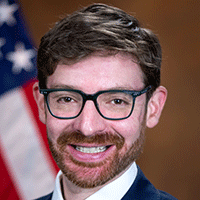
Keith EdelmanActing Principal Assistant Chief, FCPA Unit, Fraud SectionU.S. Department of Justice
- How the shifting FCPA enforcement landscape in Africa compares to other high risk markets
- How to adapt your compliance program to the unique, heightened corruption risks associated with doing business in Africa
- Updating internal controls, corporate policies and procedures
- Developing a due diligence approach based on the appropriate risk levels associated with each third party, and across your supply chain
- The impact of recent legislative and enforcement changes
- Navigating cross-border investigations by U.S., African and more international authorities
 Networking Break
Networking Break
BREAKOUT SESSIONS B (Select one session)
Track 1: Interactive Benchmarking Series — Revisiting Third-Party and Supply Chain Due Diligence and Monitoring: The Newest Rules of the Road

Matthew CohenDirector, Associate General CounselMeta

Salim Jorge Saud NetoPartnerSaud Advogados

David KassChief Compliance OfficerVerizon

Brian OngSenior Managing DirectorFTI Consulting
- Factoring in geographical risks into due diligence methodologies
- Onboarding and classifying third party intermediaries and monitoring their activities
- Identifying new risks through the use of alternative diligence methods
- To what extent are companies responsible for the conduct of foreign subsidiaries and ongoing oversight of these entities?
- How much diligence is required on subcontractors and vendors
- New lessons for vetting and monitoring your supply chain amid increasing enforcement
Track 2: The New Realities of Cross-Border Internal Investigations: The Interplay of Foreign Privacy and Labor Laws, Privilege, Governance Issues and Budget Constraints

Lisa MillerDeputy Assistant Attorney General, Criminal DivisionU.S. Department of Justice

Sarah CoynePartnerWeil, Gotshal & Manges LLP

William (Widge) DevaneyPartnerBaker McKenzie

Kunal GuptaPartnerTrilegal (India)

Andrew LevinePartnerDebevoise & Plimpton LLP
- When to involve outside counsel and foreign advisors
- When and when not to investigate new or peripheral red flags
- Deciding if the internal investigation findings should be reported to the company’s board of directors, audit committee, and to U.S. and/or international agencies
- Managing the impact of foreign labor and privacy laws on the scope of internal investigations
- Budgetary impacts of cross-border investigations
- Avoiding inadvertent waivers of privilege — and considering the scope and limits of privilege protections in other jurisdictions
International Think Tank: Spotlight on China
Track 3: Anti-Corruption, Data Privacy and Geopolitical Risks: Updating Your Blueprint for Navigating Uncertain Legal, Compliance and “On the Ground” Dilemmas

Bingna GuoPartnerWhite & Case LLP

Claire RajanPartnerAllen & Overy LLP

Philippe OudinotSpecial Compliance OfficerAirbus SE
- How companies and financial institutions are evolving their programs in response to geopolitical tensions with China
- Special considerations for onboarding and monitoring third parties in China
- Revisiting interactions with local government officials and local agencies
- What does it mean to “cooperate” in the Chinese Government context
- Contrasting FCPA vs. local enforcement risks for local and multinational companies
- How the key local agencies communicate with companies, and approach regulatory approvals and investigations

Stephanie DavisChief Ethics & Compliance Officer Volkswagen Group of America

Angela MainSVP & Global Chief Compliance OfficerZimmer Biomet

Julia SymonChief Compliance Officer, Vice President (Legal)KBR

Jeremy ZuckerPartnerDechert LLP
This smaller-group discussion will take a deep dive into the potential worst-case scenarios that keep CCOs up at night. Explore what is on their legal radar and why it should be on yours — and the lesser-known rules for making the right calls under pressure.
- The top 5 risks to flag now, including FCPA, international trade and cybersecurity
- Making tough calls under pressure: Stories on hits and misses—and lessons learned
- Corporate Governance: Winning the board over and resonating
- Securing buy-in for additional resources
- How the CCO role has evolved in recent years—and perspectives on the direction for the role for the next year
- What it takes to drive ethical conduct from the top down
- Embedding global regulatory requirements into your processes and procedures
- Evaluating future, uncertain risks posed by geopolitical tensions, and the challenges of interacting with local government officials
BREAKOUT SESSIONS C (Select one session)
Track 1: Interactive Benchmarking Series — Working Through Complex Risk and Compliance Issues Posed by the Compensation Incentives and Clawbacks Pilot Program: Concrete Examples of Program and Policy Changes

Una DeanVP, Assistant General Counsel, Head of Global InvestigationsIBM

Shana CappellSenior Director, Chief Anticorruption/Investigations Counsel PepsiCo, Inc.

Greg AndresPartnerDavis Polk & Wardwell LLP

Kimberly A. ParkerPartnerWilmerHale LLP

Sarah WaltersPartnerMcDermott Will & Emery
- Revisions to the Evaluation of Corporate Compliance Programs (ECCP)
- How organizations have been revisiting their compensation programs
- Challenges to implementation in foreign jurisdictions, including local employment laws
- Determining what an overall “good-faith effort” on the part of companies really means
- Developing the structure and scope of a written clawback policy — and carefully considering who the policy is going to cover:
- officers only?
- senior employees above a certain level?
- all supervisory employees?
- all sales employees?
Future of FCPA Compliance Series
Track 2: Leveraging Artificial Intelligence for Legal Matters, Due Diligence and Monitoring

Drew NorthernVice President, Chief Ethics & Compliance Officer, Cook Group and Chief Integrity, Social Impact and SustainabilityCook Medical

Todd SwintPrincipal, Investigations & ForensicsPwC

James M. KoukiosPartnerMorrison & Foerster LLP
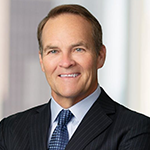
Michael WardPartnerBaker Botts LLP
- Special considerations for designing and updating corporate policies around AI usage
- Training your employees on acceptable policies and practices
- Writing risk statements
- Leveraging AI for centralized transaction monitoring systems
- Addressing concerns about biased outcomes with AI models, including discrimination-based claims
- Navigating the interplay between AI tools, the data that is utilized, and the results and recommendations that are generated
- To what extent you can rely on AI outputs
- Ensuring that any AI solution that is deployed complies with all applicable regulations, including data privacy laws
Track 3: DOJ’s Increasing Focus on Individual Accountability for Legal and Compliance Professionals: Defense Counsel Perspectives on Emerging New Liability Trends

Gina CastellanoPartnerCadwalader, Wickersham & Taft LLP

Eugene IngogliaPartnerAllen & Overy LLP

Adam SiegelPartnerFreshfields

Courtney TromblyPartnerKing & Spalding LLP
- The status of individual prosecutions, including general counsel, chief compliance officers and accountants
- Recent enforcement actions against individual executives and key takeaways
- Deciding when to self-disclose potential violations
- Reviewing the scope of legal and compliance officers’ obligations to investigate potential red flags and monitor suspicious activity
- The scope of a company’s obligation to retain legal counsel for the employee and take an additional steps

Donald AndersonPartnerTDI

Mehgan WichukSVP, General Counsel & Chief Compliance OfficeTrillium Flow Technologies
Participants from your industry will convene separately for smaller-group networking and compliance benchmarking. Expand your industry specific network and exchange the newest best practices that are tailored to the specific realities of your business.
- The compliance and third-party risks specific to each of the components for oil and gas/energy projects: exploration, drilling, facilities support, transport, etc.
- The challenges associated with assets being controlled by state-owned companies
- When (and when not) employees at these state run companies qualify as foreign government officials under the FCPA
- Tailoring local legal and operational requirements to the context of emerging markets
 Networking Cocktail Reception
Networking Cocktail Reception
Main Conference Day 2
November 30, 2023
 Networking Breakfast
Networking Breakfast
40th Annual Conference Spotlight: Former FCPA Unit Chiefs Discuss the Evolving Impact of FCPA Enforcement on Corporate Culture, Risk Management and Compliance Programs – and Predict What’s Next

Christopher CestaroPartnerWilmer Cutler Pickering Hale and Dorr LLP

David LastPartnerCleary Gottlieb

Kara BrockmeyerPartnerDebevoise & Plimpton LLP

Daniel KahnPartnerDavis, Polk & Wardwell LLP

Mark MendelsohnPartnerPaul Weiss
Join us for a look back until now with Former FCPA Unit Chiefs — and perspectives on the year ahead as developments continue to unfold.
Concurrent Sessions
Track 1: Monitorships, DPAs and the Broader Compliance Lessons Learned: Companies and Former Monitors Discuss Life During and After a Monitorship and DPA

Andrew GentinChief, Corporate Enforcement, Compliance, and Policy Unit, Fraud SectionU.S. Department of Justice

Billy JacobsonPartnerJacobson Lopez LLC

Patrick MurphySenior Vice PresidentGlobal Head Litigation and Investigations Fresenius Medical Care

Sam PailcaAssociate General CounselMicrosoft

Michael Anders SkriefPrincipalPwC
Join in-house compliance executives and leading outside counsel, as they delve into the lesser known, “behind the scenes” realities of navigating through a monitorship and DPA.
Topics of discussion include:
- Lessons for preventing a breach of a DPA
- Insights on the process, criteria and selection of monitors
- Best practices for managing an independent compliance monitorship
- Promoting systemic change within organizations through interdepartmental cooperation
- Preserving business continuity and addressing stakeholder considerations
- Deterring future misconduct: Concrete examples of policy and training upgrades

Adam YoffieSenior Corporate Counsel, Litigation and Government InvestigationsBristol Myers Squibb

Mara SennExecutive Global Compliance LeaderGE Healthcare

Matthew WernerSVP, Chief Compliance & Data Privacy OfficerBio-Rad Laboratories
During this smaller-group session, participants from your industry will convene separately for smallergroup networking and compliance benchmarking. Expand your industry-specific network, and exchange best practices for managing heightened risks that are unique to your business and industry.
Topics for discussion include:
- DOJ enforcement updates in the life sciences context
- How the life sciences industry is updating messaging app policies, procedures, and monitoring
- The latest on managing unique, evolving bribery risk factors for sponsors and CROs
- Life Science-specific considerations for measuring the effectiveness of compliance programs
 Networking Break
Networking Break
Sponsored by: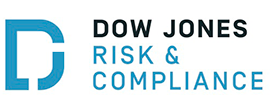
Sponsored by:

BREAKOUT SESSIONS D (Select one session)
Track 1: Interactive Benchmarking Series – Ephemeral Messaging and Retention Systems: Determining if Your Compliance Function is Fully Equipped to Govern the Use of Personal Devices, Messaging Apps and More

Candy LawsonSVP, Chief Compliance Officer and Senior Deputy General Counsel Comcast (UK)

Peter BlumbergManaging Director, Legal Compliance and InvestigationsFedEx Express

David C. RybickiPartnerK&L Gates LLP

Benton CurtisPartnerMcDermott Will & Emery

Stephen O’MalleySenior Managing Director, Digital Investigations & DiscoveryJ.S. Held, LLC
- The new regulatory expectations for retaining business records and correspondence
- Updating written policies governing usage, maintenance, and retention
- What is now expected for retention of business records and correspondence, and how is industry overcoming hurdles to implementation?
- The continuing impact of the global pandemic on corporate use of messaging platforms, and how increased usage has impacted compliance
- The necessary skillsets that are required for compliance officers
Track 2: What It Now Takes to Successfully Defend Your Compliance Program to the Agencies: How to Demonstrate Effectiveness and Avoid Pitfalls

Kathryn AtkinsonMember, Firm ChairMiller & Chevalier Chartered

Andrew ColesPartnerResolution Economics LLC
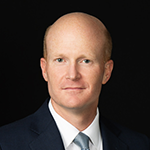
Daniel GroomsPartnerCooley LLP

Corinne A. LammersPartnerPaul Hastings LLP

Lewis ZirogiannisPartnerBaker Botts LLP

Kyle ClarkePartner Baker Botts LLP
- Demonstrating that companies are designing and implementing effective compliance systems and controls
- Highlighting that the programs are “well designed” and work in practice
- Highlighting the processes for assessing risk and that a program is tailored to match those resources to the specific risk profile
- Demonstrating that a program is working — and how
- Real-world examples and stories — and their compliance lessons
Track 3: Developing a Global ESG Compliance Program: The Changing Landscape of ESG and Its Interplay with Anti-Corruption

Holly CarrManaging Director, ForensicsBDO USA, P.A.

Esther FleschPartnerMiguel Neto Advogados (Brazil)

Claudius SokenuChief Administrative Officer, General Counsel, and Corporate SecretaryUnisys
- How a company’s reporting on ESG activities can affect the accuracy of its books and records
- Adjusting your third party questionnaires to capture additional ESG concerns, such as how diversity is handled and what environmental goals a third party has
- Leveraging data to assess potential violations, climate risks and compliance issues
- Identifying potential human rights risks associated with business operations and conducting human rights impact assessments
- Assessing self-reported information provided by third parties to assess the overall level of ESG risk
Legal Think Tank
Track 4: The Grey Areas of the New M&A Safe Harbor Policy: Practitioners Dissect the Legal and Practical Implications

Katherine ChooVice President and Chief Counsel, Global Investigations General Electric Company

Michael BucknerVP and Deputy General CounselDanaher Corporation

Brian BenczkowskiPartnerKirkland & Ellis LLP
With the recent announcement of the Safe Harbor Policy, the DOJ continues to highlight the importance of prompt self-disclosure, which now encompasses the M&A context. The new Policy goes beyond antitrust and FCPA, so corporations and legal practitioners will grapple with how to plan for the six-month VSD and 12-month remediation deadlines.
Be sure to join this interactive and informative session as our panel of experts discuss the big-ticket risks, deadlines, and steps needed to qualify for the program. Topics will include:
- Strategic considerations for pre-acquisition and integration planning
- Attorney-client privilege considerations
- What qualifies as a “bona fide, arms-length M&A transaction”?
- Disgorgement: What does it mean; how to address?
- What to expect when the government learns of compliance issues before the acquirer
- Conducting risk-based audits of all newly acquired or merged businesses as quickly as possible
 Networking Luncheon
Networking Luncheon
Global Anti-Corruption Advisory Board Luncheon (*Open to Advisory Board Members Only)
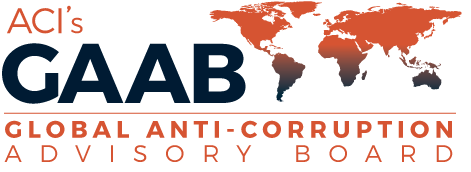
Global Anti-Corruption Advisory Board Luncheon (*Open to Advisory Board Members Only)

Concurrent Sessions
Track 1: The Anatomy of Whistleblower Complaints and Hotlines – The Good, The Bad & The Ugly: Practitioners Share Lessons Learned When Conducting Interviews, Managing Claims and the Reward Process

Creola KellyChief, Office of the WhistleblowerU.S. Securities and Exchange Commission

Brian E. KowalskiPartnerLatham & Watkins LLP

Rita D. MitchellPartnerWillkie Farr & Gallagher LLP (UK)

Brian MichPartnerControl Risks
- Maximizing the use and effectiveness of hotlines
- Internal reporting vs. proceeding directly to an SEC complaint
- Are whistleblower complaints and internal reporting mechanisms competing systems?
- Have more employees reported directly to the agencies after recent rulings and awards; if so, why?
- To what extent whistleblower complaints are an accurate measure of workplace culture?
- What are the public and corporate impacts of whistleblower awards?
Internal Think Tank: Brazil & Mexico
Track 2: A New Era of Anti-Corruption Enforcement? Recent Political Changes and their Anticipated Impact on Corporate and Individual Liability

Gerald MoodyAssistant Chief, FCPA Unit, Fraud SectionU.S. Department of Justice

Jonathan AdamsPartnerBaker McKenzie Abogados, S.C. (Mexico)

Marisa PeresDirector, Compliance & Data Privacy, AmericasNissan Motor Corporation

Maria Gonzalez CalvetPartnerRopes & Gray LLP

Lisa VicensPartnerCleary Gottlieb
In this session, our panelists will explore the anticipated effects of new Administrations in Brazil and Mexico.
- The potential for increased FCPA and local enforcement for companies that operate in Brazil and Mexico, as well as their legal and compliance executives
- Legislation vs. enforcement in Mexico and Brazil: Dissecting the roles and responsibilities of agencies at the federal, state and municipal levels
- How the key local and international agencies will interface with companies
- Contrasting enforcement risks for local and multinational companies
 Networking Break
Networking Break
Sponsored by:
Sponsored by:


Lorinda LaryeaPrincipal Deputy Chief, Fraud SectionU.S. Department of Justice

Tracy PriceDeputy Chief, FCPA UnitU.S. Securities and Exchange Commission

Richard NephewCoordinator on Global Anti-CorruptionU.S. Department of State

Iris BennettPartnerSteptoe & Johnson LLP

Patrick KilleenUnit Chief, International Corruption UnitFederal Bureau of Investigation
PART I
PANEL DISCUSSION: Participants will gain further anti-corruption insights from the agencies.
PART II
OPEN AUDIENCE Q&A: Engage with the panelists through an extended opportunity for open Q&A with key enforcement and government officials – or feel free to submit your questions to: [email protected].
Your questions will be asked on an anonymous basis.





